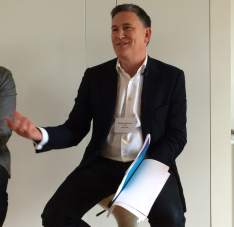Ethical behaviour, virtual reality and the demise of the website among Hotwire’s 2016 trends
 Virtual reality, the death of the website and brands looking to put a stake in the ground over political and social issues will be some of the hot areas of next year according to PR agency Hotwire’s Communications latest Trends Report.
Virtual reality, the death of the website and brands looking to put a stake in the ground over political and social issues will be some of the hot areas of next year according to PR agency Hotwire’s Communications latest Trends Report.
But while brands will start to put a line in the sand on important issues holding group Enero, which owns Hotwire, hasn’t made any plans to make agency pledges like Edelman’s commitment to no longer work with coal producers and climate change deniers.
Asked whether the group was looking at an ethical commitment Matthew Melhuish, CEO of Enero, who was speaking on a panel to launch the report said: “This is a trends report. I didn’t come here expecting to make a commitment on something we would or would not do in the future.
“We always try and do the right thing wherever we can and that’s always guided the way we behave. We look at anything on a case by case basis.”


As an ex-Enero staff member I believe they are the last group in the world to understand, or be a first mover on ethics.
No 10
Oh, very insightful. Would it be too much to ask for some numbers behind these brilliant predictions or is that too much to expect from a PR agency?